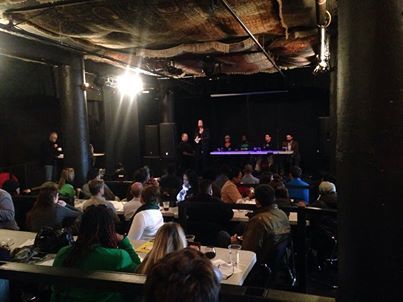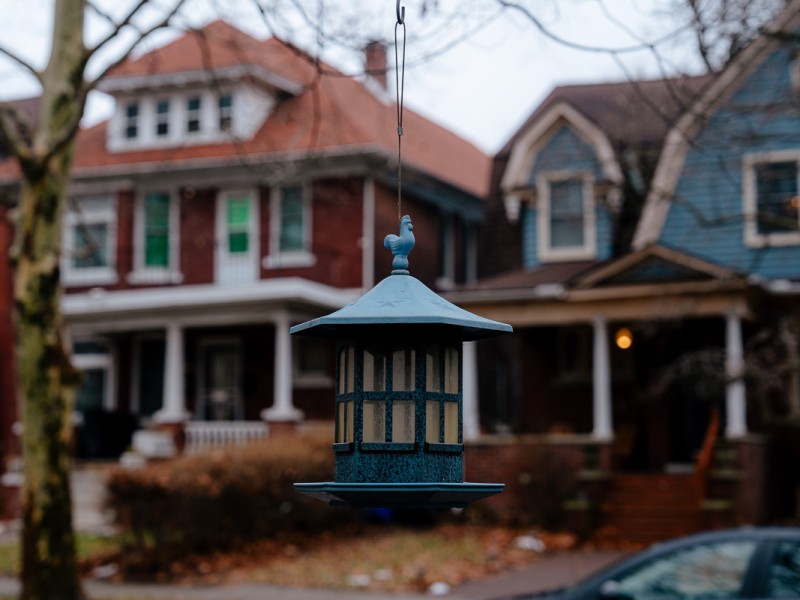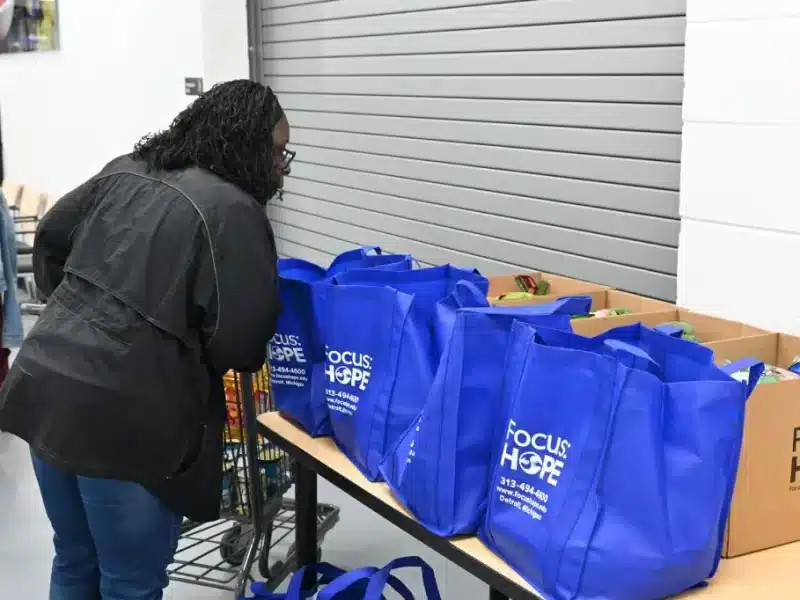Open City recapped: “Starting Slow and Small”
What is a pop-up? The answer might seem obvious, but members of this month's panel came to an interesting conclusion: it is similar to beta testing software in that you can work out the bugs without the risk of a full launch. Aaron Mondry was there.
The most prevalent buzzword in entrepreneurship today is arguably “pop-up.” Defined as a business that temporarily opens in a commercial space, many in attendance likely wondered why this model had become so popular, especially in Detroit. Fortunately, an experienced panel gathered in the Park Bar’s upstairs theater last Monday to answer this question, and many more.
The panel was composed of: Michael Forsyth, Program Manager at DEGC and Revolve Detroit; Tunde Wey, Co-Founder, (revolver); Kurt Spieles, Owner, Spielhaus Toys; and Tawnya Clark, Owner, The Batata Shop.
Travis Wright, a writer and the host WDET’s Culture City, was the moderator.
April Boyle, the Director of Small Business Initiatives for D:Hive, provided alternatives to the term ‘pop-up’ in her brief opening commentary: “Temporary retail, ephemeral spaces, testing your ideas, whatever you want to call it…It’s the way to test your ideas nice and slow.”
The panel found a consensus on this point. Pop-ups are similar to beta testing software in that you can work out the bugs without the risk of a full launch.
“I was new to the food industry,” Clark said, who makes sweet potato products and various places around town. “I wanted to start small but didn’t want to deal with building maintenance…It was a good way for me to test the idea.”
Wey’s restaurant, (revolver), invites guest chefs to cook for an evening. Though he rejected use of the term ‘pop-up’ to describe his model, he did acknowledge the similarities. “Eating at revolver is like attending a play. The playhouse is the same but the show is different…Chefs don’t have their own place, usually, if they cook with us. We provide the structure.”
Wright added, “So it allows a chef to come in and try it for a couple of days.”
When asked why he chose to operate a pop-up, Spieles confessed that, “I wasn’t thinking about a pop-up when I planned the business. I wanted a permanent structure.” But after considering it further, he recognized its virtues. “With a pop-up I didn’t have to put capital into a buildout and a long term lease. Instead I put it into the business plan.”
Forsyth has helped numerous business get off the ground and is an advocate for pop-ups. “It’s important to mitigate risk,” he said. “If the pop-up fails that’s okay because it taught you something and the cost was low. It’s just as important to figure out what not to do as what to do.”
Spieles thinks it was the right choice to run a pop-up first. “If I wanted my own space I would have had to go to a bank and take out a loan. At this point I’m better off than when I started, I’m not in debt, and if I need investors I have the numbers to prove my business.”
Forsyth encouraged owners of a pop-up to “track everything. The money won’t be there unless you have real numbers and testimonials. The check from investors is closer if you can prove your business.”
The City of Detroit and investors are also taking note of the utility of pop-ups.
The DEGC has been putting more resources into this model through Revolve, which “partners with community leaders, building owners, entrepreneurs, and artists to activate vacant storefronts with transformational businesses and art installations.” Forsyth and his team have put together an indispensable checklist for opening a pop-up.
But pop-ups are not always the elegant answer and come with their own unique challenges. Spieles wished someone would have warned him about “the enormous effort that goes into staging the space,” and the subsequent letdown.
“I wished I could have stayed open,” he said. “There’s an emotional wave that you ride operating a business for the first time. To motivate yourself to get open again right away is difficult.”
Promotion also presented its own set of difficulties. Clark said, “Working at MOCAD I realized I needed to do my own marketing.” People didn’t simply show up because she was there. Spieles emphasized the importance of promoting early, months beforehand, to build anticipation.
But marketing doesn’t end with the pop-up. Forsyth said, “A major challenge is keeping the customer engaged after you shut down…because the best marketing tool is customers.”
Wright summed up the panel’s statements well, saying, “The consensus seems to be that a pop-up is a great way to start a business but not the ultimate goal.”
Forsyth concurred: “If you believe in your business just go out and do it. A pop-up is a phase, just the beginning.”







